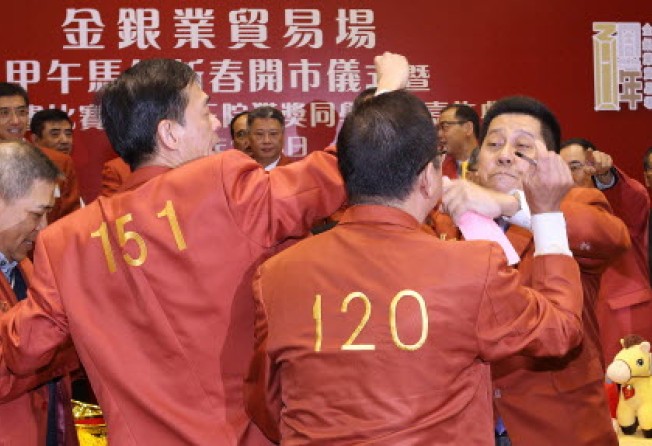Tie-ups between bourses do not always live up to the hype
Links between bourses sound good in theory but they don't always live up to their hype

There has been much talk recently about alliances between mainland and Hong Kong markets.
The London Metal Exchange is in talks to set up an alliance with the mainland commodities exchanges in Shanghai, Zhengzhou in Henan province, and Dalian in Liaoning province.
The Chinese Gold and Silver Exchange Society will kick off alliance talks with the Shanghai Gold Exchange.
Earlier this month, regulators in Hong Kong and on the mainland announced a scheme to link up the bourses in the city and Shanghai for investors in Hong Kong and the mainland to trade stocks listed on each other's market from October.
Suddenly, alliances have become the vogue. But please do not open the Champagne yet.
Let's check what happened to the alliance with technology-heavy US bourse Nasdaq, which has seven of its stocks trading on the Hong Kong stock exchange.
Since the grand ceremony 14 years ago, there has been modest turnover in those stocks.
During the 12 months to Friday, Microsoft had four transactions, in which 1,220 shares were traded. There were two transactions in Intel, for 520 shares. Cisco Systems had one transaction of 100 shares. There was no turnover for Dell, Applied Materials, Starbucks and Amgen.
More recently, the BRICS alliance for futures trading has proved to be a flop. In the alliance, which linked up the futures exchanges of Brazil, Russia, India, China and South Africa in October 2011, Hong Kong Exchanges and Clearing represented China.
When set up the five exchanges had a combined 9,481 companies listed, with a market capitalisation of US$9.02 trillion.
Two and a half years on, nothing much has happened except for the cross-listing of each other's benchmark equity index futures in March 2012.
But investors have stayed away and there has been no turnover in the past 12 months.
The reasons are simple: many Hong Kong investors do not understand US firms and their knowledge of other BRICS countries may be even less.
Now, alliances between the Hong Kong and mainland exchanges should start off on a better footing, because we are part of the same country.
But when it comes to commodities, few Hongkongers could tell you the price of copper or what zinc is used for. If the commodities alliance means only a cross-listing of products, it will not have much impact.
We still do not know what type of alliance will materialise.
What is clearer is the Shanghai-Hong Kong link: investors on each side can trade shares on the other exchange, up to a total quota of 550 billion yuan (HK$690 billion).
If the alliances between the commodities bourses and the gold bourses follow a similar format, they would offer meaningful channels for cross-border funds flows.
Such links would be more successful than previous flops.